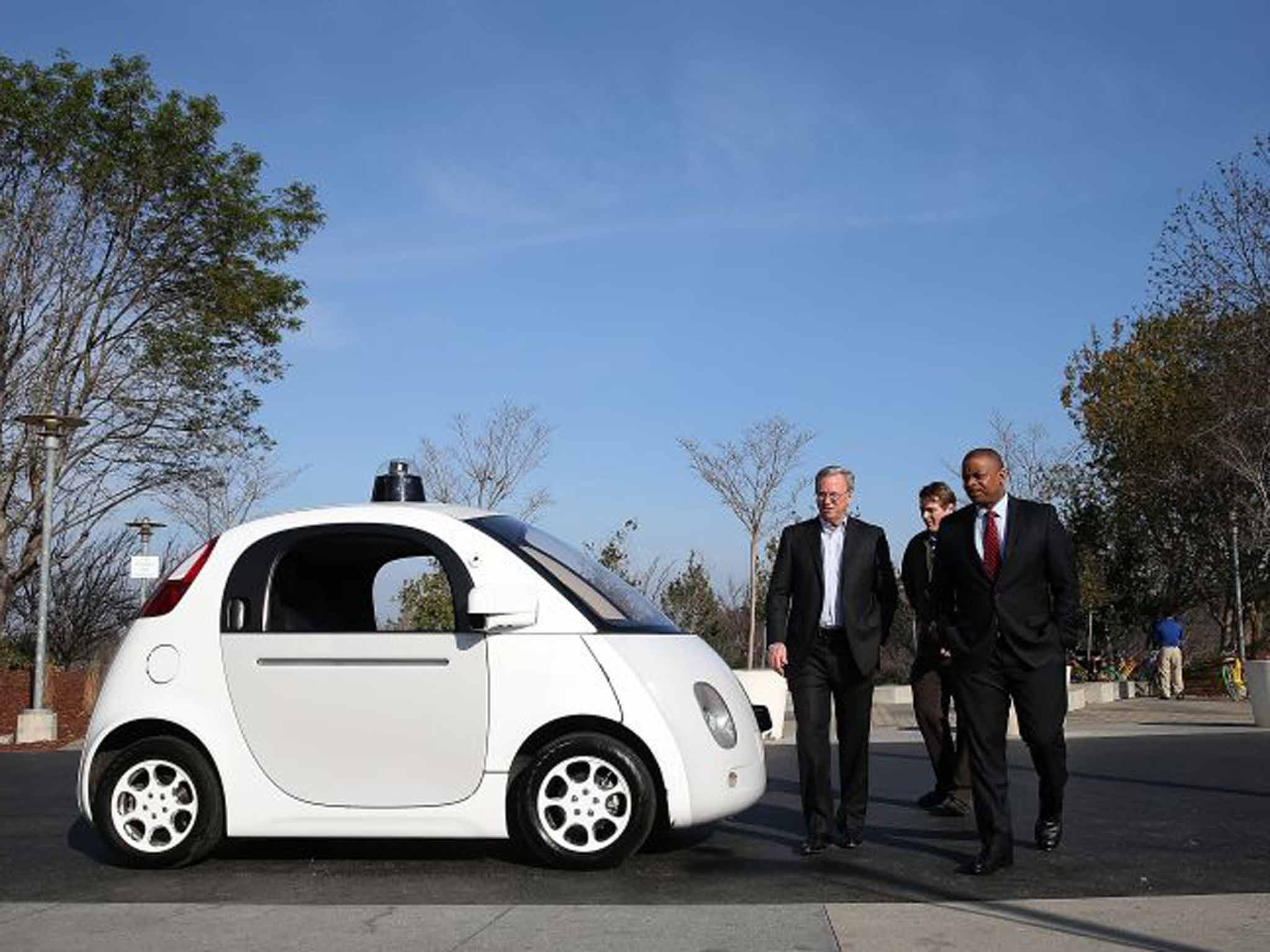Google's driverless car crashes: Who's to blame?
Google's driverless cars have been involved in 11 accidents, but it claims that other motorists were always to blame. Come off it, says Sean O'Grady, and let's swap details.

Did you ever hear the one about the driverless car? It had 11 collisions in four years. And now they've decided to let driverless trucks out on the roads. Boom! Boom! (as your airbags will go).
But seriously, folks, Google's driverless cars really do exist; they really have been out and about on the roads of California (where else?); and they have "driven" some 1.7 million miles. So, in the circumstances, the accident rate is not that bad. Also, according to Google, these prangs were not the "fault" of the driverless vehicles; but that's a modern variant of the old joke that "the tree jumped out in front of me". (Or, to offer a real-life excuse from the files of the insurance industry: "Going to work at 7am this morning I drove out of my drive straight into a bus. The bus was five minutes early".)
Still, there must be something intensely mystifying about hitting, or being hit by, something with no one in the driving seat. How do you do road rage in such circumstances? Can you really take it out on the passenger? Looking at the stupid moon face of the Googlemobile, you would probably be much more inclined to lay into its plastic visage, and give it the automotive equivalent of a split lip.
If you think about it, maybe it's not so surprising that – having developed satnav systems accurate to within a few centimetres, and fitted radar to cars that will sense the presence of obstacles all around and brake or speed up accordingly – all this clever software could be just connected together, dispensing with the need for an alert human driver. I have driven a Mercedes with auto-braking and auto-acceleration, a VW that can park itself, a Citroen that would punch you on the bottom if you strayed out of a lane, and a Skoda with "traffic jam assist", where all you have to do is steer. The technology can work.
It is also true that the driverless lorry is out there on the highways, this time in next-door Nevada. Mercedes-Benz has managed to persuade the state authorities, who know a bit about taking a gamble, to allow a fleet of trucks (Future Truck 2025 to give them their space-age title) to perform "certain freeway driving situations".
Which puts me rather in mind of that wonderful cult movie Duel, made in 1971 by Steven Spielberg – his first, in fact. It starred Dennis Weaver as an innocent and helpless travelling businessman pursued across lonely dusty highways by a sinister-looking and intensely malevolent, indeed murderous, articulated tanker. The driver, if there was one, is never seen, which gives the film its wonderfully diabolic edge. Auto-anthropomorphism never got scarier. And I can't help thinking that driving to Vegas with a Mercedes "Future Truck" in your rear-view mirror might have something of that same unnerving quality.
Perhaps, if the science fictionists are right, one day these driverless machines – which do have brains, after all – might decide to take to the road themselves, aided and directed by their computer mates controlling their satellite navigation systems, and other computer accomplices that run road-traffic signals and flows. We would then have created a race of car super-beings, whose intentions are as yet unknown. They might become artificially insane as well as artificially intelligent. And as we all know, the most dangerous component in any car is the nut behind the wheel.
Join our commenting forum
Join thought-provoking conversations, follow other Independent readers and see their replies
Comments
Bookmark popover
Removed from bookmarks